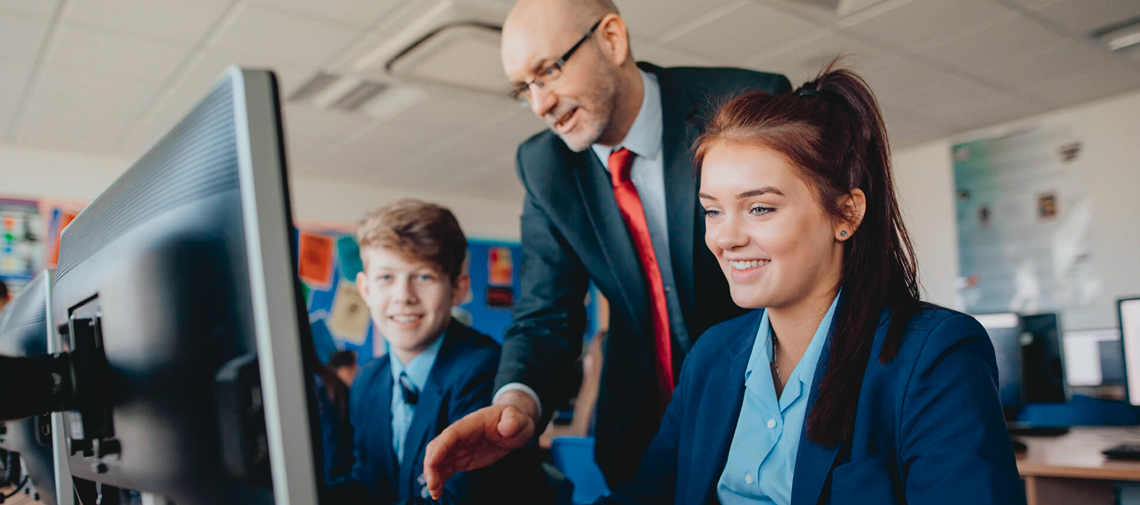Buying refurbished computers can save schools money and help the planet

Every year, millions of laptops, tablets and desktop computers are thrown away, creating huge landfill and e-waste issues. Low levels of recycling mean that many tonnes of materials such as copper, silver and gold are lost, while the earth’s finite resources are depleted. Schools have a part to play in bucking this trend – and it’s one that will save them money.
Schools regularly need to upgrade their IT systems due to ageing and wear and tear. Yet few have the budget to buy new computers and laptops that will enable young people to reach their academic potential. As a result, many are turning to refurbished equipment – a far cheaper alternative and one that allows the lifetime of an individual unit to be extended by up to ten years, reducing the environmental impact of disposal.
When the Inspiration Trust in East Anglia had to reduce the IT infrastructure spend across its 14 academies by 40%, head of ICT Michael Vaughan got in touch with recycling specialists The Renewed Store. Having conducted an internal audit to develop the replacement and upgrade strategy, Michael was interested in how refurbished desktops and laptops could help him achieve his spend reduction.
‘Based on the age and condition of the PCs across all our schools, the estimated replacement cost was £5 million,’ he says. ‘I reduced the spend by 20% by choosing different technology providers and platforms but the real game-changer, which enabled me to reduce the spend by another 20% to reach my 40% target, was working with Renewed. They explained how our Trust could save a lot of money on our IT infrastructure without affecting the quality of the systems we provide to our staff and pupils.’
The Trust purchased 200 desktops and laptops from Renewed, paying on average 50% less on each unit. In total, this saved £50,000. ‘Our investment has already paid off and we cannot fault the systems,’ says Michael. ‘They look and feel brand new, and our staff and pupils have all been raving about them.’
The Renewed Store has been working with schools since 1997 to deliver high-performing refurbished IT hardware, which comes with a 12-month warranty and BSI certification. MD Bill Champness says many schools don’t realise that refurbished IT can be provided with exactly the same spec and model as they’d get new from a vendor’.
The Oldershaw School in Wallasey purchased its first batch of refurbished PCs in the summer of 2018, after another school recommended them. At the time, says network manager Keith Hallam, a new suite of 26 PCs for an IT room would cost about £16,000 to £19,000 for medium specified systems with solid state drives and HD displays. By purchasing refurbished systems, the school was able to kit out three IT suites within budget, instead of just one. ‘These systems are still in use today and working well with a very high reliability factor,’ says Keith. ‘We used the 12-month warranty a couple of times for power supplies and the service was impeccable, with replacement parts shipped within one working day. Given the rapid increase in costs for new equipment since the pandemic, we’d have no hesitation in purchasing refurbished equipment again.’
therenewedstore.com
More ways to recycle at school
Paper and products
Incorporating recycling into the school curriculum does not have to be complicated or time consuming, and many schools already do this very well. Simple activities such as sorting waste materials into appropriate containers, measuring quantities of collected recyclables and assigning tasks for volunteers can all have an impact. Teachers can introduce local environmental issues into lessons, or ask pupils to conduct research on pollution prevention strategies. Such activities can help foster a culture of respect for the environment among students, teachers, administrators, parents, and other members of the community.
By teaching children about recycling at an early age, we can put them on the path for life-long sustainability practices that will benefit generations to come. Even young children can learn how every small act contributes to making a difference in our world – from reducing consumption of single use plastics to recycling their plastic pens, playground litter picks and carrying a reusable water bottle.
Waste food
Composting can make use of organic materials that would otherwise be thrown away. It’s easy to start a compost programme: all that’s needed is a container to collect organic materials like food scraps, waste vegetation from around the site and cardboard. Schools can work with local waste management companies or community organisations to transport the organic material to a commercial composting facility. Or they can create an on-site composting system, either by investing in a high-efficiency composter or creating a compost area with basic tools such as pitchforks, wheelbarrows and shovels.
Water
Water butts are an excellent way for schools to reduce their environmental impact and become more sustainable, as well as saving on the cost of mains water. These simple devices collect rainwater, which can then be used for a variety of purposes such as watering plants or providing water for construction works.
The use of water butts encourages pupils to think about the importance of conserving precious resources so that future generations will not have to suffer from shortages.
Waste-free lunches
Encourage students to bring lunches or snacks packed in reusable containers rather than disposable plastic bags or wrap. Avoid selling pre-packaged snacks and drinks that come in single-use packaging.

